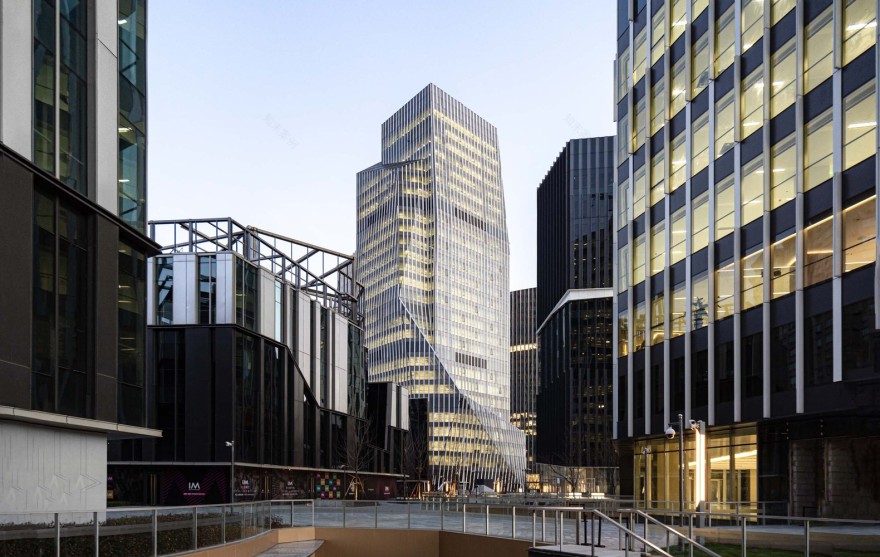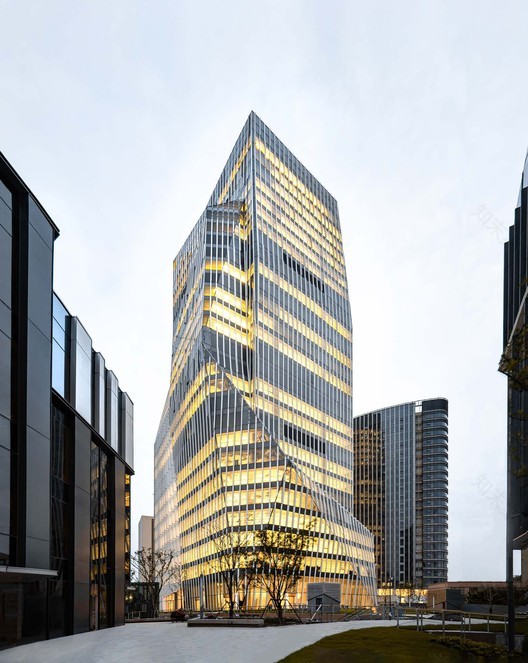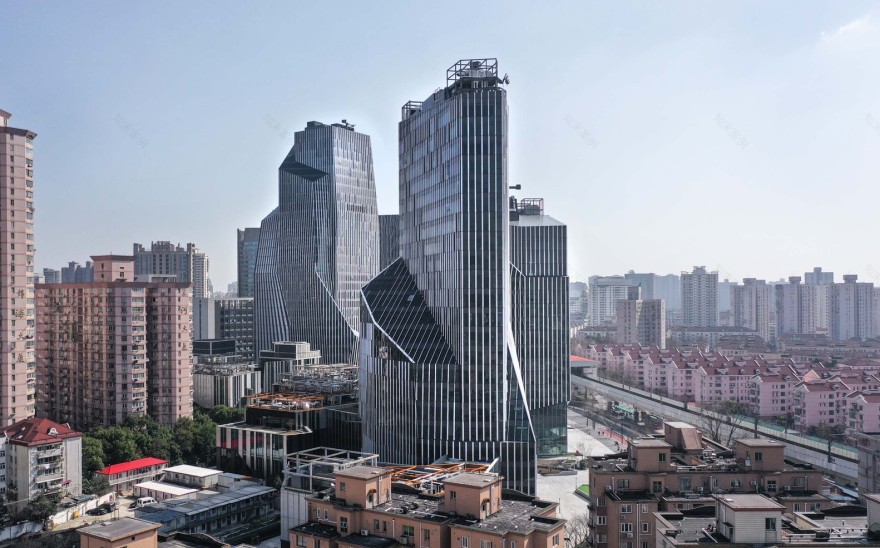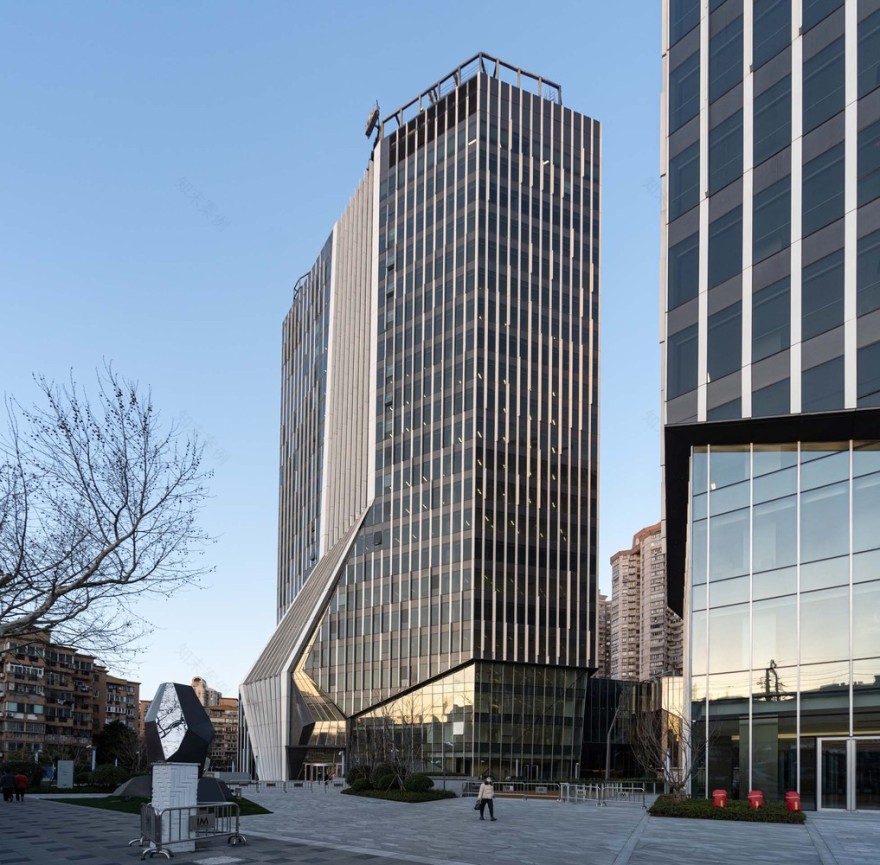查看完整案例


收藏

下载

翻译
Architects:Aedas
Area :259000 m²
Year :2021
Lead Architects :Christine Lam (Global Design Principal); David Clayton (Global Design Principal)
Client : K2 Real Estate (Shanghai Heshi Investment Development Co. Ltd)
City : Shanghai
Country : China
The development, located at the intersection of Kaixuan Road and Huaihai West Road of Changning District and conveniently accessible via MTR Line 10 at Hongqiao Road Station, is adjacent to the Shanghai City Sculpture Art Centre, and Redtown Art District. The site is not among any of the CBDs in Shanghai. Thus, a primary and key purpose of the development is to drive business value by attracting tenants and consumers as it integrates with the surrounding context. “Our goal is to shape IM Shanghai into a singular location where social gathering takes place within a natural setting, in an effort to promote interpersonal communication in the era of the online world.” Aedas Global Design Principal Christine Lam explains.
An Ink Scroll Depicting a Rugged Landscape. Derived from the concept of mountains, the development stands to present stratified geology providing pinnacles, caves, rocks, and waterfalls in the valleys, with geometric office towers expressing as mountain peaks and rock-shaped pavilions lining alongside the busy traffic flow in between to form a dynamic streetscape. A cultural tower, 3 office towers, 2 exhibition pavilions, and 5 retail pavilions within the development are strategically scattered on the site to form a layered mountainous experience of wild nature. Ascending office towers are sculpted with powerful tapering cuts, expressing as mountain peaks and leading the eyes to the apex. Inspired by traditional Chinese landscape painting, layering of a mountainous contour is depicted by using Void and Solid striation, which also assist in complying with the glazing to wall ratio requirement.
Along Kaitian Road features a dynamic serrated façade symbolizing fissure through the mountain, together with busy traffic flowing in-between, a vibrant streetscape is created. Rock-inspired pavilions are featured with surface details of symbolic “cracks”, and cut-out terraces on top forming unique forms for each block and allowing consumers to enjoy an uninterrupted view of the “mountainous” scenery they are in. Cave-like sunken plazas are smartly set to allow natural daylight into the basement as it enhances pedestrian circulation and connection between the northern and southern part of the development.
Spatial Layout of Mountain Range & Water Streams. The overall layout takes a bird's-eye view and captures a panoramic snapshot of the bucolic surrounding. An ink painting in a city emerges from the collaging of mountain peaks, stone forests, caves, courtyards, canyons that emulate varied architectural shapes. Run across the site is Kaitian Road, a fissure below which runs the traffic currently and bifurcates the rocks to occasion a face-to-face outlook between the multi-storey commercial buildings. The cultural tower, office towers, retail, and exhibition pavilions are couched in a jagged manner which contributes to its dynamic and grandiose appearance, viewed from the West. The sunken plaza that connects the north and the south creates an illusion of a cave rift, completing the silhouette of an iconic mountainous terrain.
To mitigate negative shading impacts to the environment, and provide a solution for the problem of residence insolation, the stacking building blocks are sensibly arranged through rigorous analysis on site setback, mechanical loading, and solar requirements.
Future Diversified Office. The team is ahead of the curve in that we have started developing expandable working spaces, before the outcrop of co-working spaces in Asia. “As an atypical co-working office building, IM Shanghai offers more than low-cost shared spaces or desk rental services. The development, aspiring to become room for long-term connection and business growth, is designed and executed with the quality of a headquarter building.” Aedas Global Design Principal David Clayton said. From glazing panels of the grand entrance to details of geometric mosaic patterns within, materials are delicately chosen to blend futuristic elements into the oriental aesthetic of the development, resulting in the sparkling charm and elegance of a high-end business centre.
The tower adopts an efficient core tube structure and employs polygonal shapes in the standard floor plan. By dividing the passenger elevator into high and low zones, the high zone serves to create a more expansive office area through the setback of the core. Architectural forms are anticipated by the inclined transferred columns to retain usable space. In addition, the independent space provides a small-scale headquarters-like environment for start-ups, which renders it more attractive compared to other large-scale spaces. In addition, exhibition spaces within the development would serve as a value-added feature for the tenants, largely eliminating time and costs spent for sourcing and transportation for their exhibition needs.
Placemaking. "To create a successful design and fulfill the conditions of placemaking, one has to deliver on three aspects: improve district quality, generate robust, self-contained capabilities and establish community-shared values.” Guided by the tenets of urban regeneration and the requirements of increasingly connected digital cities, the design is rooted in the community. Through creating arresting visual motifs, a sense of belonging among members can be fostered, which in turn guarantees the sustainability of the community. IM Shanghai echoes and integrates with the traffic structure. The optimization of the city’s interface brings in new offices, complementary commercial and service facilities. With a coordinated and systematic approach, it streamlines development and ensures the flourishing of the district.
▼项目更多图片
客服
消息
收藏
下载
最近



























